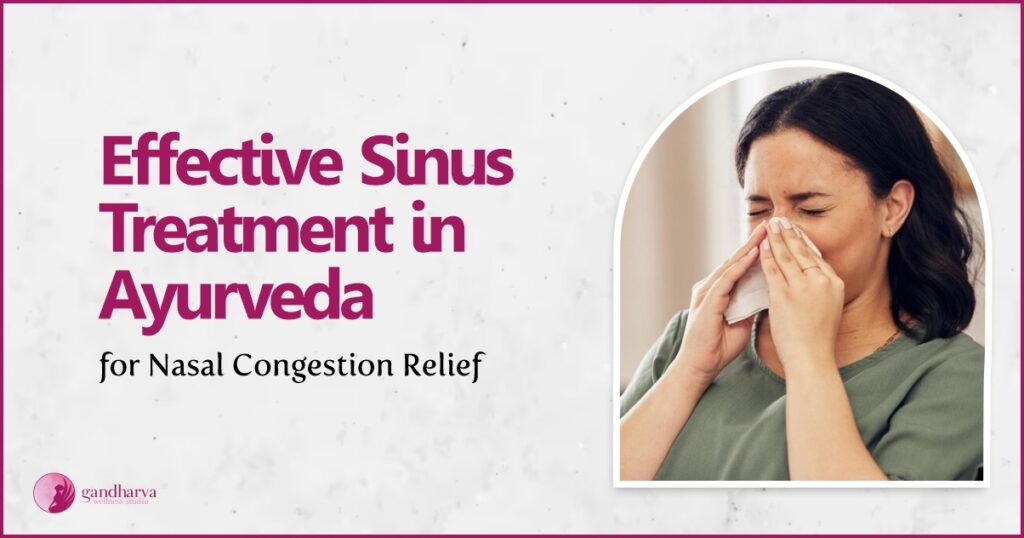
Understanding Sinusitis
Definition and types of sinusitis
- Sinusitis is an inflammation of the tissues lining the sinuses, which are air-filled spaces in the skull.
- There are four types of sinusitis: acute, subacute, chronic, and recurrent.
- Sinusitis can be caused by viral, bacterial, or fungal infections, as well as environmental pollutants and allergens.
Symptoms and impact on daily life
- Symptoms of sinusitis include fever, headache, postnasal drip, congestion, cough, sore throat, sneezing, and bad breath.
- Sinusitis can impact daily life by causing fatigue, difficulty concentrating, and decreased productivity.
Causes of Sinusitis
Viral, bacterial, and fungal infections
- Viral infections, such as the common cold, can cause sinusitis.
- Bacterial infections, such as strep throat, can also cause sinusitis.
- Fungal infections, such as allergic fungal sinusitis, can cause sinusitis in people with weakened immune systems.
Environmental pollutants and allergens
- Environmental pollutants, such as tobacco smoke and pollution, can irritate the sinuses and cause sinusitis.
- Allergens, such as dust, mold, and pet dander, can also cause sinusitis.
Anatomical issues and genetic predisposition
- Anatomical issues, such as a deviated septum or nasal polyps, can increase the risk of sinusitis.
- Genetic predisposition can also play a role in the development of sinusitis.
Ayurvedic Treatment for Sinusitis
Overview of Ayurvedic approach to treating sinusitis
- Ayurvedic treatment for sinusitis focuses on identifying and addressing the underlying causes of the condition.
- Ayurvedic practitioners use a holistic approach to treat sinusitis, incorporating diet, lifestyle changes, and herbal remedies.
Importance of identifying individual constitution (prakriti) and imbalance (vikriti)
- Identifying an individual’s constitution (prakriti) and imbalance (vikriti) is crucial in Ayurvedic treatment for sinusitis.
- This helps practitioners to tailor treatment to the individual’s specific needs and address the root cause of the condition.
Nasya: A Key Ayurvedic Treatment
Definition and benefits of Nasya (nasal administration of herbal oils)
- Nasya is a key Ayurvedic treatment for sinusitis that involves the administration of herbal oils through the nose.
- Nasya helps to clear nasal passages and sinuses, reducing congestion and inflammation.
How Nasya helps to clear nasal passages and sinuses
- Nasya helps to loosen and clear mucus from the nasal passages and sinuses.
- It also helps to reduce inflammation and swelling in the sinuses.
Other Ayurvedic Remedies
Dhumapana with Haridra churnam (smoking herbal powder)
- Dhumapana with Haridra churnam is an Ayurvedic remedy that involves smoking a herbal powder to help clear the nasal passages and sinuses.
Nasal steam inhalation with eucalyptus oil
- Nasal steam inhalation with eucalyptus oil is an Ayurvedic remedy that helps to clear congestion and reduce inflammation in the sinuses.
Ayurvedic medicines: turmeric, ginger, and ashwagandha
- Turmeric, ginger, and ashwagandha are Ayurvedic medicines that have anti-inflammatory and antioxidant properties, which can help to reduce inflammation and fight infection in the sinuses.
Home Remedies for Sinus Relief
Yoga and meditation for stress reduction and immune system support
- Yoga and meditation can help to reduce stress and support the immune system, which can help to alleviate symptoms of sinusitis.
Jala Neti (nasal rinsing) for nasal cleansing
- Jala Neti is an Ayurvedic remedy that involves rinsing the nasal passages with a saline solution to help clear mucus and debris.
Herbal remedies: ginger, basil leaves, cloves, and cinnamon
- Ginger, basil leaves, cloves, and cinnamon are herbal remedies that have anti-inflammatory and antioxidant properties, which can help to reduce inflammation and fight infection in the sinuses.
Panchakarma: A Comprehensive Approach
Understanding the five detoxification procedures of Panchakarma
- Panchakarma is a comprehensive Ayurvedic approach that involves five detoxification procedures to help eliminate toxins and restore balance to the body.
How Panchakarma helps to eliminate toxins and restore balance
- Panchakarma helps to eliminate toxins and restore balance to the body by cleansing the digestive system, respiratory system, and nervous system.
Kerala Ayurveda’s Approach
Overview of Kerala Ayurveda’s approach to treating sinusitis
- Kerala Ayurveda’s approach to treating sinusitis involves a holistic approach that incorporates diet, lifestyle changes, and herbal remedies.
Anu Thailam: a specialized herbal oil for nasal administration
- Anu Thailam is a specialized herbal oil that is used in Kerala Ayurveda’s approach to treating sinusitis.
Treatment for Sinusitis: A Holistic Approach
Combining Ayurvedic treatment with lifestyle changes and self-care
- Combining Ayurvedic treatment with lifestyle changes and self-care is crucial in managing sinusitis.
Frequently Asked Questions
Can sinusitis be cured with Ayurvedic treatment?
- Yes, sinusitis can be cured with Ayurvedic treatment, but it depends on the severity of the condition and the individual’s response to treatment.
How long does Ayurvedic treatment take?
- The duration of Ayurvedic treatment for sinusitis varies depending on the individual’s condition and response to treatment.
What are the costs associated with Ayurvedic treatment?
- The costs associated with Ayurvedic treatment for sinusitis vary depending on the individual’s condition, the type of treatment, and the location of the treatment center.
Conclusion
Recap of Ayurvedic treatment options for sinusitis
- Ayurvedic treatment options for sinusitis include Nasya, Dhumapana with Haridra churnam, nasal steam inhalation with eucalyptus oil, and Ayurvedic medicines such as turmeric, ginger, and ashwagandha.
Importance of consulting an Ayurvedic practitioner for personalized treatment
- It is important to consult an Ayurvedic practitioner for personalized treatment, as they can help to identify the underlying causes of the condition and tailor treatment to the individual’s specific needs.
